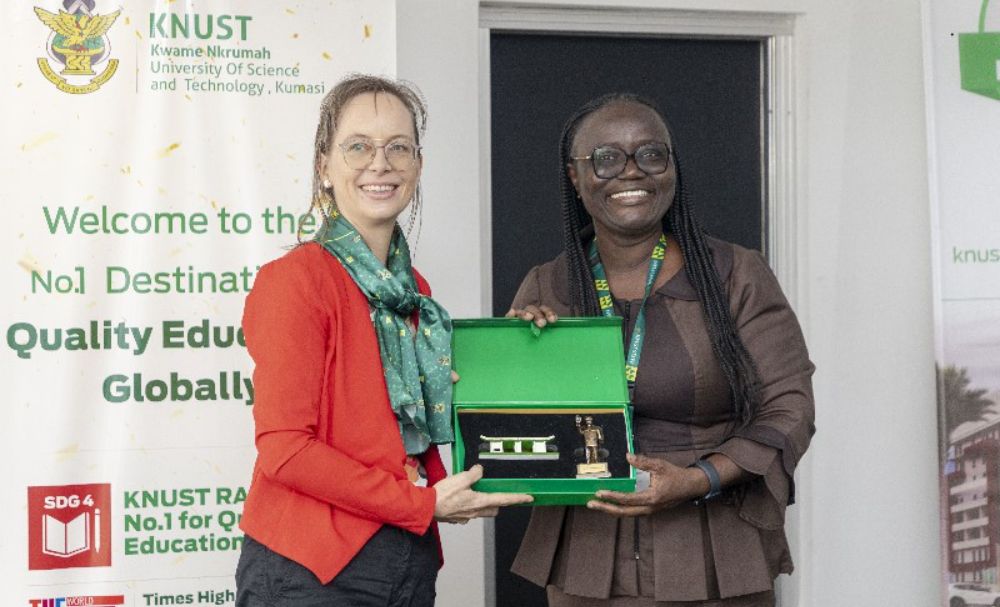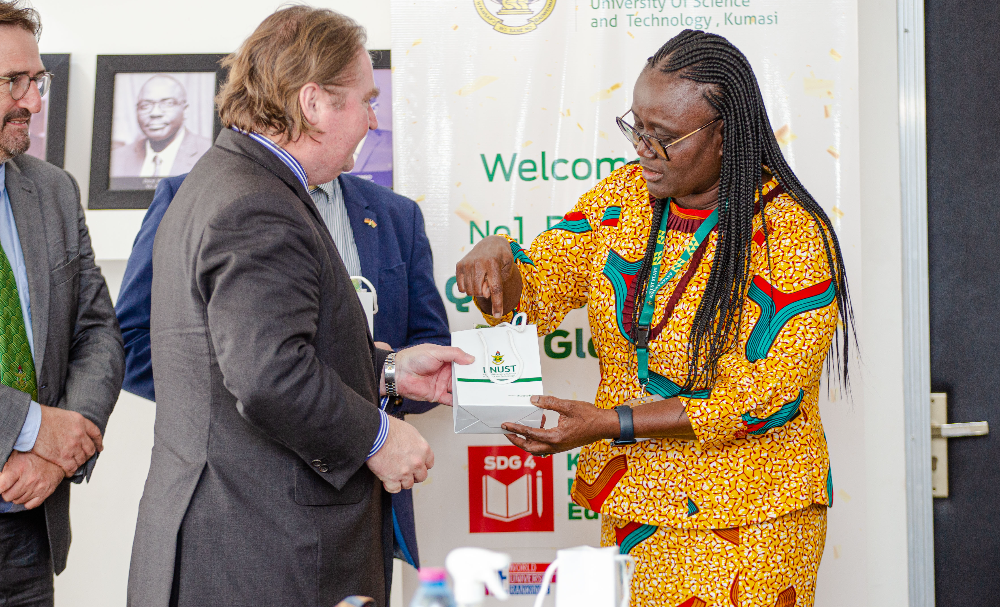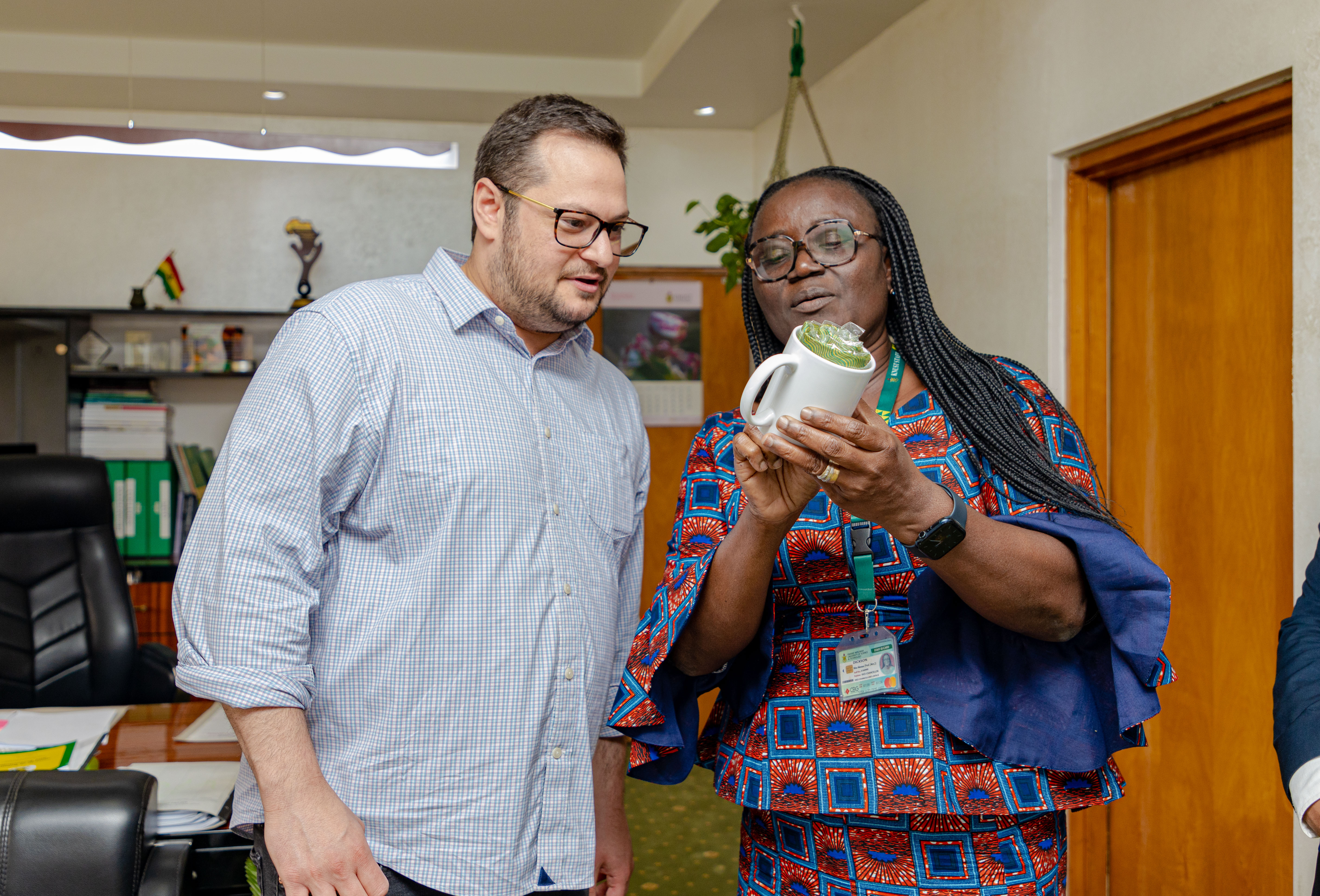At the Kwame Nkrumah University of Science and Technology (KNUST), Kumasi, Vice-Chancellor Prof. Mrs. Rita Akosua Dickson's simple inquiry, "Tea or coffee?", extends beyond hospitality, serving as a symbolic gesture alongside a personalized gift to dignitaries and embodying the university's blend of tradition, warmth, and scientific commitment, particularly in its pioneering research into herbal teas.

Following the formal presentation of the university’s famed green rectangular souvenir, featuring figurines of a royal stool and Dr. Kwame Nkrumah, the university’s namesake, this question introduces a personalized gift: a KNUST-branded mug, accompanied by a tie for male guests or a scarf for female guests.
This gesture reflects the university’s unique blend of tradition, warmth, and thoughtful hospitality.
But are more visitors choosing tea? Well, that might just call for a mini-survey!
Herbal tea research
Beyond ceremony and symbolism, KNUST’s commitment to tea extends into rigorous scientific exploration, particularly in the field of herbal infusions. KNUST has been at the forefront of researching the potential of indigenous herbs for tea formulation.
A notable study, published in the Journal of the Ghana Science Association in 2013, investigated blending Moringa oleifera (moringa), Hibiscus sabdariffa (roselle), and Cymbopogon citratus (lemongrass) into herbal teas.
The research, titled "Sensory Evaluation and Nutritional Properties of Blended Herbal Teas," revealed that a blend of 50 percent moringa, 30 percent roselle, and 20 percent lemongrass was the most preferred in terms of colour, flavour, astringency, and overall sensory appeal.
This combination not only enhanced taste but also improved the nutritional profile, offering higher levels of calcium and iron compared to single-ingredient teas.
A further study by KNUST researchers explored optimal processing methods for preserving the nutritional integrity of moringa leaves.
It was found that oven drying at 60°C for six hours best preserved essential nutrients and resulted in a more palatable tea than other drying methods. This research contributes significantly to maximizing the health benefits of local herbal teas.
Academic programming
KNUST’s dedication to herbal medicine is also institutionalized through its Bachelor of Science in Herbal Medicine program.
This comprehensive academic offering trains students in the analysis, quality control, and clinical research of herbal medicines, while strongly emphasizing the integration of traditional knowledge with rigorous scientific inquiry.
Where every cup tells a story
So, the next time you hear “Tea or coffee?” from the Vice-Chancellor at the Council Chamber, know that it's not just a matter of preference. It’s a distilled expression of who we are: a university grounded in tradition, driven by science, and committed to meaningful hospitality.

As the world celebrates International Tea Day, KNUST raises its cup, not just in honour of tea, but in celebration of a culture that values knowledge, warmth, and innovation.
| Story by: Emmanuel Kwasi Debrah (URO) Photos by: Emmanuel Offei (URO) | |

















